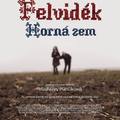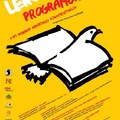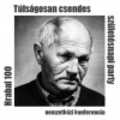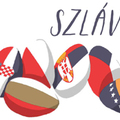Studying Overlapping Territories/Canons/Identities:
Comparative Perspectives on East Central Europe
Student Conference hosted by
the History Department and Pasts, Inc. Center for Historical Study
of the Central European University, Budapest;
supported by the CEU-HESP Comparative History Project
(25-26 May 2010, Budapest)
After 1989 there has been a sweeping wave of Europeanization, regionalization and supra-national integration involving thecountries in Central and Eastern Europe. This, however, did not lead to the obliteration of conflicting historical myths, prejudices, and negative stereotypes, which survived and in many cases, paradoxically, became reinforced after most of these countries entered the Euro-Atlantic integration structures. It is obvious that much more institutional and intellectual investment is needed to challenge these perceptions and develop more integrative collective identity discourses
Comparative and trans-national history is one of the most promising venues of building alternative narratives of the past. The last 20 years brought a veritable boom of such scholarly ventures in Western Europe, and many promising endeavours were started also in East Central and Southeastern Europe, from joint textbook projects, through writing the history of multiethnic regions to even more ambitious projects of ‘historical reconciliation.”
The Central European University in general, and its History Department and its affiliated research centre, Pasts, Inc,. in particular, have been at the forefront of such ventures. The Department’s curriculum is comparative, while the Center has initiated a number of major projects (such as the CEU-HESP Comparative History Project or the project on Hungarian-Romanian entangled histories) which sought to break out of the conventional framework of nation-centered historiography. Likewise, the Futures Continuous Project, organized by CEU students and faculty, brought together Hungarian and Romanian graduate students in an exchange program.
The aim of the student workshop hosted by CEU is to bring together students from the region interested in comparative and transnational historical research. Historical studies in this context are understood in a broader sense, also including boarder disciplines as historical sociology, historical anthropology, political thought, etc. The intention of the organizers is to facilitate a transnational dialogue among the participants and also to form a broader network of students interested in these themes and willing to be involved in further cooperation.
Conveners:
Constantin Iordachi (Associate Professor, History Department, Central European University Budapest, iordachinc@ceu.hu)
Balázs Trencsényi (Assistant Professor, History Department, Central European University Budapest, trencsenyib@ceu.hu)
Board:
Damir Agičić (Associate Professor, University of Zagreb, damir.agicic@zg.htnet.hr)
Kateryna. Dysa (Assiastant Professor, Kyiv Mohyla Academy, hobot77@yandex.ru)
Luciana Ghica (Assistant Professor, University of Bucharest, luciana.ghica@gmail.com)
Jaroslav Miller (Associate Professor, Palacký University Olomouc, jaroslav.miller@seznam.cz)
Slávka Otčenášová (Assistant Professor, University of Košice, otcenasova@gmail.com)
Program25 May9.00 Registration9.30. Welcome – Constantin Iordachi and Balazs Trencsenyi9.40 Keynote Speech: Eric Beckett Weaver (Editor, The South Slav Journal) The Benefit of Being Bunjevci: A brief illustration of the comparative method.Panel I. Overlapping nation-building projects10.20-13.45Klen, Barbara (Slovenia, Amsterdam University), Studying Overlapping Identities: The Illyrian Movement as a Case Study of Both Yugoslavian and Croatian Identity FormationCoroban, Costel (Romania, Bucharest University), Overlapping Territory Between Romania and Bulgaria: From Friendship to Distrust at the Beginning of the 20th Century (ca. 1878–1916)Discussion of the papersKurhajcová, Alica (Slovakia, Matej Bel University), Memory – Celebrations – IdentityMajcher, Sebastian (Poland, University of Łódz) Situation of the Hungarian minority in Central Eastern Europe in the Beginning of 21st CenturyDiscussion of the papersKovács, Zsuzsanna (Romania, Babeş-Bolyai University, Cluj) Hungarian Youth’s National Identity in TransylvaniaPagovski, Zhikica (Macedonia, American University of Blagoevgrad) Europeanization of Multiethnic Countries: The Macedonian Path toward StabilityDiscussion of the papersKeynote Speech: Markian Prokopovych (Pasts Inc., Center for Historical Studies, CEU, Associate Research Fellow) Cities of East Central Europe under the Empires and Their AftermathPanel II. Multiple and Contested identities15.25–18.40Ksinan, Michal (Slovakia, Slovak Academy of Sciences, History Institute, PhD student) Štefánik’s Identity in Changes of TimesKazejak, Izabela (Ukraine, Department of History and Civilization, European University Institute, Ph.D. Candidate) Official Policy and Local Popular Responses: Jews in Wrocław and in Lvov (1945–1968)Discussion of the papersVascautan, Nicolae (Moldova, Vilnius University) The Religious Conflict in the Republic of Moldova: a Dilemma of TransitionSamokhvalov, Vsevolod (Moldova, University of Cambridge) Forgetting, Reviving and Again Forgetting the Balkans Contested Identities in the Ukrainian Bessarabia: Reni District CaseBara, Anna (Russia, EUI Florence) Formation of Regional Identities in RussiaDiscussion of the papers26 May10.00. Keynote Speech: Gábor Kádár (Eötvös Loránd University of Sciences, Budapest, Associate Professor) Shoah and Porrajmos. A comparative analysis of the persecution of Jews and Roma in 1944-1945 HungaryPanel III. Cross-histories: Studying social and intellectual processes in a regional framework10.40–13.05Sakal, Ievgeniia (Ukraine, Kiev-Mohyla Academy) The Reformed Orthodox Teaching as the Product of the Inter-Confessional Dialog in the Polish-Lithuanian CommonwealthTieanu, Alexandra (Romania, Babeş-Bolyai University, Cluj) Central Europe: from Mitteleuropa to the EUDiscussion of the papersJelena Lončar (Serbia, Faculty of Political Sciences, University of Belgrade), The Development of Civil Society in Central and Eastern Europe after 1989Drabik, Jakub (Slovakia, University of Prešov), Anarchists in the Czech Republic and Slovakia, their Self-reflection and Historiography at the Turn of the 80’s and 90’s of the 20th Century12.40 Discussion of the papersPanel IV. Comparing politics of history and memory cultures14.15–19.00Varga-Kuna, Bálint (Hungary, University of Mainz) The Myths of the Beginning. The Construction of the Magyar Conquest and State Formation in the 19th Century Hungarian, Slovak, Romanian and Transylvanian Saxon National HistoriographiesZaiets, Dmytro (Ukraine, Kharkhiv University) The Identity Discourse: the Heuristic Potential of Public Art PracticesDiscussion of the papersSvyetlov, Oleksandr (Ukraine, Kharkiv University), Re-assessing the Stereotypes of Past Conflicts (Poland and Ukraine)Dmitryv, Tetyana (Ukraine, Ivan Franko National University, Lviv), Collective Image of Ukrainians and Ukraine in Modern Polish History TextbooksDiscussion of the papersDragomir, Elena (Romania University of Helsinki) Narrating the Past: Communist Nostalgia in RomaniaMartynau, Alex (Belarus, Olomouc University), Lustration: a Modified “Peace versus Justice” Dilemma?Discussion of the papersClosing Lecture:Charles Ingrao (Professor, History Department, Purdue University) History as a Destructive and Reconstructive Force in Central Europe
Térkép:







Hozzászólások